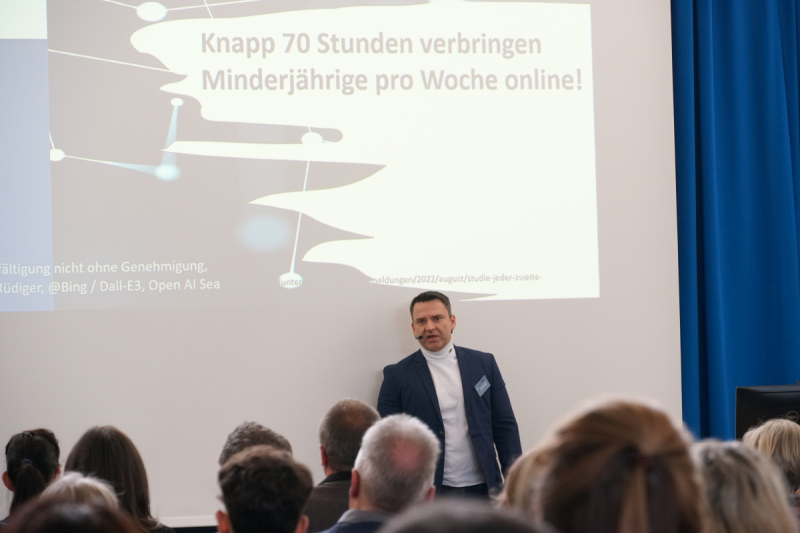About the Institute
Founded in 2022, the Institute for Cybercriminology at the Police University of the State of Brandenburg is the first of its kind in the German-speaking world.
It addresses the criminal policy and societal challenges, as well as the specific characteristics of crime commission, crime prevention, and law enforcement in the digital age.
The Institute sees itself as a platform for scientific exchange and offers a first opportunity for networking and dialogue in the still emerging research field of cybercriminology. This includes the promotion of interdisciplinary collaboration—both nationally and internationally.
Leader

The Institute is headed by Professor Dr. Thomas-Gabriel Rüdiger.
His research focuses on digital crime, interaction risks in social media, digital policing, crime prevention, and the emergence and control of norm violations in the digital space.
Contact:
Prof. Dr. Thomas-Gabriel Rüdiger
Institute for Cybercriminology
Police University of the State of Brandenburg
Bernauer Straße 146, 16515 Oranienburg
Mail: thomas.ruediger [at] hpolbb.de
Further information: Prof. Dr. Thomas-Gabriel Rüdiger <https://hpolbb.de/institut-f%C3%BCr-cyberkriminologie>
Scientists at the Institute for Cyber Criminology
Prof. Dr. Jürgen Biedermann
Institute for Cybercriminology
Police University of the State of Brandenburg
Bernauer Straße 146, 16515 Oranienburg
Mail: juergen.biedermann [at] hpolbb.de
Weiterführende Informationen: Prof. Dr. Jürgen Biedermann
Cindy Ehlert, M.A.
Institute for Cybercriminology
Police University of the State of Brandenburg
Bernauer Straße 146, 16515 Oranienburg
Mail: cindy.ehlert [at] hpolbb.de
Weiterführende Informationen: Cindy Ehlert, M.A
Research Topics
The Institute functions as an interdisciplinary interface, primarily connecting criminology with social sciences, legal studies, education, media, and police sciences. Its research includes:
• Forms and manifestations of digital crime, such as:
o Digital sexual offenses (e.g., cybergrooming, sextortion, abuse imagery [CSAM])
o Digital hate crimes,
o The use of artificial intelligence to commit crimes
• Causes and dynamics of norm violations on the internet
• Possibilities for digital crime prevention
• The relevance of digital education
• The impact of child and youth media protection on digital crime
• The role of media literacy in preventing digital offenses
Public Engagement and Networking
A key objective of the Institute is to raise public awareness about digital crime and its societal, particularly social and criminopolitical, implications.
To this end, the Institute regularly hosts conferences and informational events, publishes materials for professionals and interested individuals, and is available for media inquiries.
It is especially committed to digital crime prevention for all age groups.
Internships
In exceptional and well-justified cases, the Institute offers the opportunity to complete an internship.
Such an internship requires enrollment in a Master’s program and proven knowledge in the field of cybercriminology, which may be demonstrated through relevant academic theses, for example.
Supervision of External Master's Theses
Supervision of external, subject-specific Master’s theses by the Institute's director is possible.
Applications must include a scientific exposé.
Initial supervision of doctoral theses is not possible at the Police University of Brandenburg, but secondary supervision may be considered.







